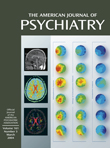Symptomatic and Functional Recovery From a First Episode of Schizophrenia or Schizoaffective Disorder
Abstract
OBJECTIVE: Follow-up studies have found that a substantial number of patients with schizophrenia achieve full recovery (i.e., sustained improvement in both symptoms and social/vocational functioning) when examined decades after an index admission. This study addressed recovery during the crucial early course of the illness. METHOD: Subjects in their first episode of schizophrenia or schizoaffective disorder (N=118) were assessed at baseline and then treated according to a medication algorithm. Full recovery required concurrent remission of positive and negative symptoms and adequate social/vocational functioning (fulfillment of age-appropriate role expectations, performance of daily living tasks without supervision, and engagement in social interactions). RESULTS: After 5 years, 47.2% (95% CI=36.0%–58.4%) of the subjects achieved symptom remission, and 25.5% (95% CI=16.1%–34.7%) had adequate social functioning for 2 years or more. Only 13.7% (95% CI=6.4%–20.9%) of subjects met full recovery criteria for 2 years or longer. Better cognitive functioning at stabilization was associated with full recovery, adequate social/vocational functioning, and symptom remission. Shorter duration of psychosis before study entry predicted both full recovery and symptom remission. More cerebral asymmetry was associated with full recovery and adequate social/vocational functioning; a schizoaffective diagnosis predicted symptom remission. CONCLUSIONS: Although some patients with first-episode schizophrenia can achieve sustained symptomatic and functional recovery, the overall rate of recovery during the early years of the illness is low.



